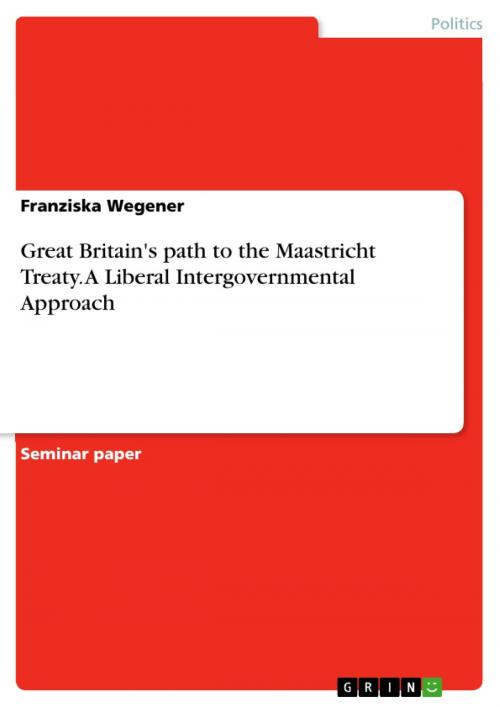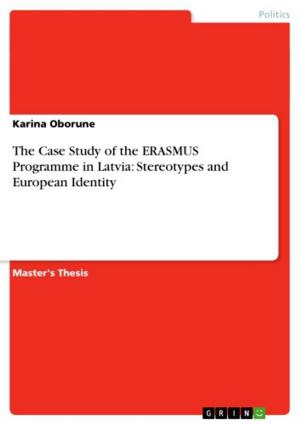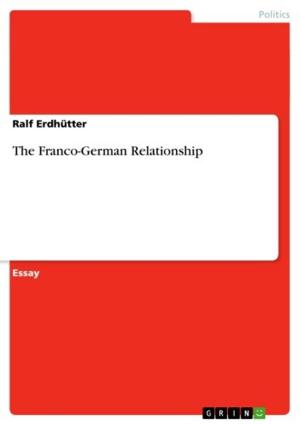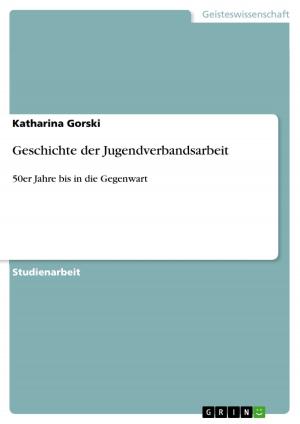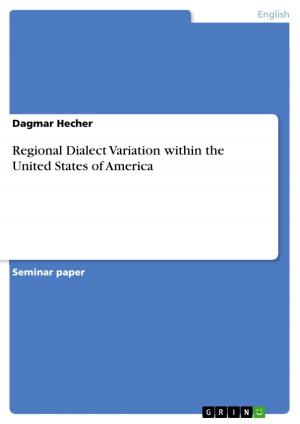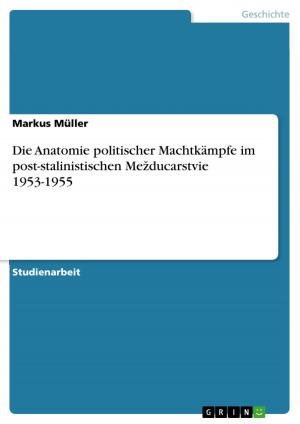Great Britain's path to the Maastricht Treaty. A Liberal Intergovernmental Approach
Nonfiction, Social & Cultural Studies, Political Science| Author: | Franziska Wegener | ISBN: | 9783668225404 |
| Publisher: | GRIN Publishing | Publication: | May 24, 2016 |
| Imprint: | GRIN Publishing | Language: | English |
| Author: | Franziska Wegener |
| ISBN: | 9783668225404 |
| Publisher: | GRIN Publishing |
| Publication: | May 24, 2016 |
| Imprint: | GRIN Publishing |
| Language: | English |
Seminar paper from the year 2015 in the subject Politics - International Politics - Topic: European Union, grade: 1,7, University of Bamberg, course: Seminar Internationale und Europäische Politik: European Integration, language: English, abstract: The process of European integration is a special and perhaps unique development in the history of international politics after the end of World War two. Due to numerous steps of integration it came gradually to an ever progressive interdependence of nation-states of the European continent, economically as institutionally. National states are partly delegating sovereign competences to supranational institutions, which possess own and independent competences. But what leads to this development? Why are states willing to transfer competences to the EU? In international politics different integration theories are used to explain the different steps of integration and at long last the ratification of treaties between states. One of these integrations steps is the Treaty of Maastricht. The implementation of the Maastricht Treaty, being signed on 7th of February 1992 and entering into force on November 1th 1993, is considered as official founding of the European Union, expanding the European Economic Community created by the Treaty of Rome of 1957. But before the official signing of the treaty by first 12 nation- states a tedious unification process was necessary, which is to be examined in the present study looking at the foreign policy of Great Britain. Regarding the political development of the European community, Great Britain has always played a special role throughout the history of the European integration process. Its foreign policy differentiates oneself from other European national states and is characterized by a certain Euro-sceptic attitude. This is not reflected only by Britain's late entry into the European Community in 1973, but also by the largest integration step since founding the European Community, which is the Maastricht Treaty. Britain first opposed nearly every policy covered by the Treaty, but indulged on certain points during the negotiations. Therefore, overlooking the foreign policy of Great Britain the question raises: 'Why agreed Great Britain, despite its skeptical attitude towards a common Europe, on the Maastricht Treaty?' Using the integration theory of Liberal Intergovernmentalism by Andrew Moravcsik, this question will be analyzed in the present study. First the most relevant facts about the theory will be pointed out, before examining the content of the Maastricht Treaty itself. Finally, there is to be an application of the theory to the case of the UK and the Maastricht Treaty.
Seminar paper from the year 2015 in the subject Politics - International Politics - Topic: European Union, grade: 1,7, University of Bamberg, course: Seminar Internationale und Europäische Politik: European Integration, language: English, abstract: The process of European integration is a special and perhaps unique development in the history of international politics after the end of World War two. Due to numerous steps of integration it came gradually to an ever progressive interdependence of nation-states of the European continent, economically as institutionally. National states are partly delegating sovereign competences to supranational institutions, which possess own and independent competences. But what leads to this development? Why are states willing to transfer competences to the EU? In international politics different integration theories are used to explain the different steps of integration and at long last the ratification of treaties between states. One of these integrations steps is the Treaty of Maastricht. The implementation of the Maastricht Treaty, being signed on 7th of February 1992 and entering into force on November 1th 1993, is considered as official founding of the European Union, expanding the European Economic Community created by the Treaty of Rome of 1957. But before the official signing of the treaty by first 12 nation- states a tedious unification process was necessary, which is to be examined in the present study looking at the foreign policy of Great Britain. Regarding the political development of the European community, Great Britain has always played a special role throughout the history of the European integration process. Its foreign policy differentiates oneself from other European national states and is characterized by a certain Euro-sceptic attitude. This is not reflected only by Britain's late entry into the European Community in 1973, but also by the largest integration step since founding the European Community, which is the Maastricht Treaty. Britain first opposed nearly every policy covered by the Treaty, but indulged on certain points during the negotiations. Therefore, overlooking the foreign policy of Great Britain the question raises: 'Why agreed Great Britain, despite its skeptical attitude towards a common Europe, on the Maastricht Treaty?' Using the integration theory of Liberal Intergovernmentalism by Andrew Moravcsik, this question will be analyzed in the present study. First the most relevant facts about the theory will be pointed out, before examining the content of the Maastricht Treaty itself. Finally, there is to be an application of the theory to the case of the UK and the Maastricht Treaty.
